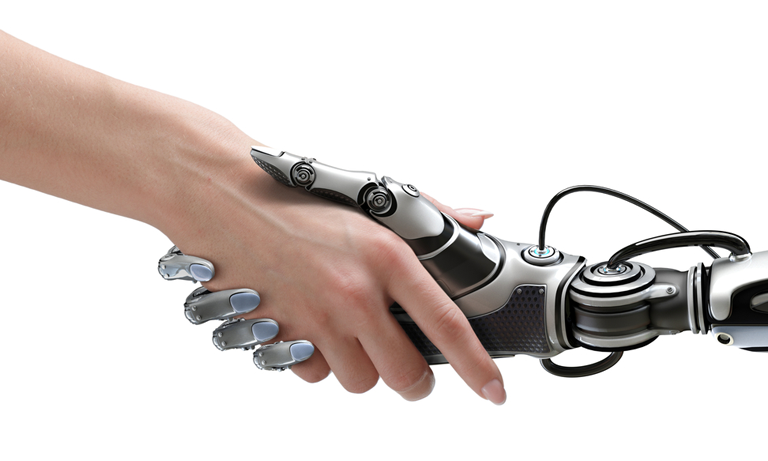 Experts believe that there are certain industries which are deemed as future-proof
Experts believe that there are certain industries which are deemed as future-proof
In fact, research suggests that over 30% of jobs in Britain are under threat from breakthroughs in artificial intelligence (AI) technology.
With pioneering advances in technology many jobs that weren’t considered ripe for automation suddenly are. RS Components have used PWC Data to reveal how many jobs per sector are at risk of being taken by robots by 2030, a mere 13 years away. Did you think you were exempt from the robot revolution?
The top three sectors who are most exposed to the threats of robots are Transport and Storage, Manufacturing and Wholesale and Retail with 56%, 46% and 44% risk of automation respectively. The PWC report states that the differentiating factor between losing jobs to automation probability is education; those with a GCSE-level education or lower face a 46% risk, whilst those with undergraduate degrees or higher face a 12% risk.
If a job is repetitive, physical and requires minimum effort to train for, this will have a higher likelihood to become automated by machines.The manufacturing industry has the 3rd highest likelihood potential at 46.6%, shortly behind Transportation and Storage (56.4%) and Water, Sewage and Waste Management (62.6%).
Although the manufacturing sector has the 3rd highest likelihood, it has the second largest number of jobs at risk of being taken by robots; an astonishing 1.22 million jobs are at risk in the near future. Repetitive manual labour and routine tasks can be taught to fixed machines and mimicked easily, saving employers both time and money.
Agriculture is a trade that cannot be taught to a robot and mimicked easily. The PWC report states that the differentiating factors between losing jobs to automation probability is education; those with a GCSE-level education or lower face a 46% risk, whilst those with undergraduate degrees or higher face a 12% risk.
There is a 18.7% risk of job potential in the agriculture sector, with a total 0.07 million jobs at high risk of automation in the near future. Perhaps it is the characteristics and requirements of jobs within the agricultural sector that lead to a lower level of risk compared to other sectors that are also manual labour and routine task operated. There are just some things AI cannot learn, yet.
The three sectors least at risk are Education, Health and Social and Agriculture, Forestry and Fishing with 9%, 17% and 19% risk of automation respectively. These operations are non-repetitive and consist of characteristics that cannot be taught and are harder to replicate with AI and robotics.
These are not the only fields where the introduction of AI will have an impact on employment prospects; Administrative and Support Services, Accommodation and Food Services, Finance and Insurance, Construction, Real Estate, Public Administration and Defence, and Arts and Entertainment are not out of the woods either.
Shane McGourty, Director at Adview believes that the recruitment sector in particular will be transformed by AI as recruiters may see their jobs taken by robots quicker than other sectors. He comments:
‘Research into the HR and recruitment industries has found that 70% of HR managers believe the recruitment process would be more effective if it were more data-driven and, because of the technological advances in the industry, an increase in the use of AI would be an obvious solution to this problem.
We’ve already seen Google introduce Cloud Jobs API, which aims to improve the recruitment process by matching “job seeker preferences with relevant job listings based on sophisticated classifications and relational models.” And, we’re expecting to see more companies follow suit. So, will recruiters be completely replaced by AI?’
‘With the level of depth and efficiency AI is able to contribute to the recruitment industry, it’s likely that recruiters will find themselves relying on AI more and more, and eventually it could lead to jobs being replaced.
Some may argue that the role of a human and their ability to experience emotion and assess character is vital to the recruitment process so this, in particular, will never be fully replaced by AI. Even if the technology does take over the low-level admin aspects of a recruiter’s role, this shouldn’t be seen as a negative impact of AI.’
The future is not all doom and gloom. Automation is set to boost productivity to enable workers to focus on higher value, more rewarding jobs; leaving repetitive and uncomplicated ones to the robots.
An increase in sectors that are less easy to automate is also expected due to lower running costs. Wealth and spending will also be boosted by the initiation of AI seizing work. Also, there are just some things AI cannot learn so these jobs will be safe.
View the full graphic here.
Recruiters love this COMPLETE set of Accredited Recruitment & HR Training – View Training Brochure








